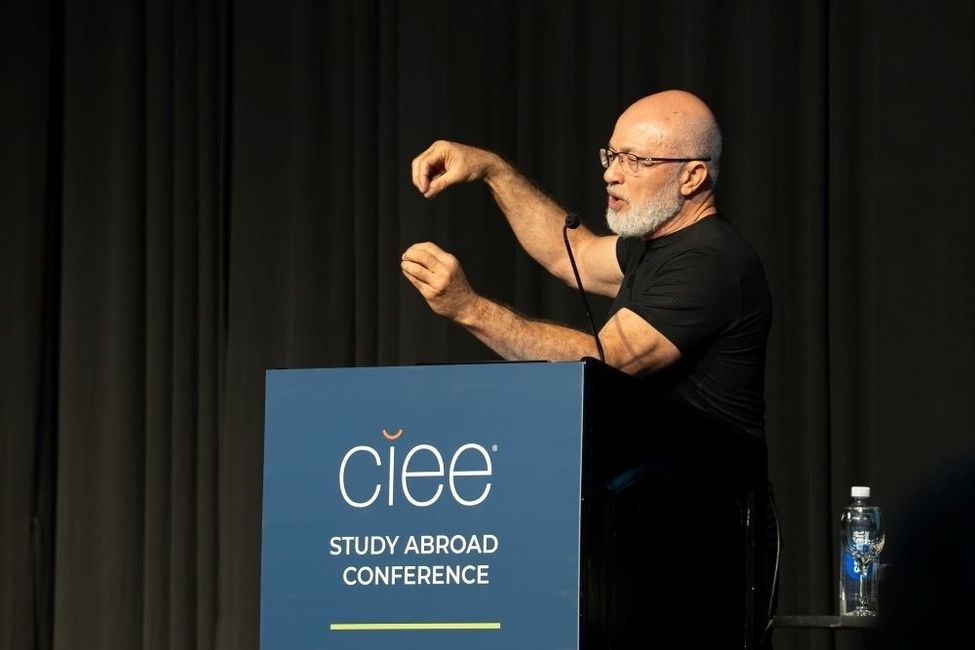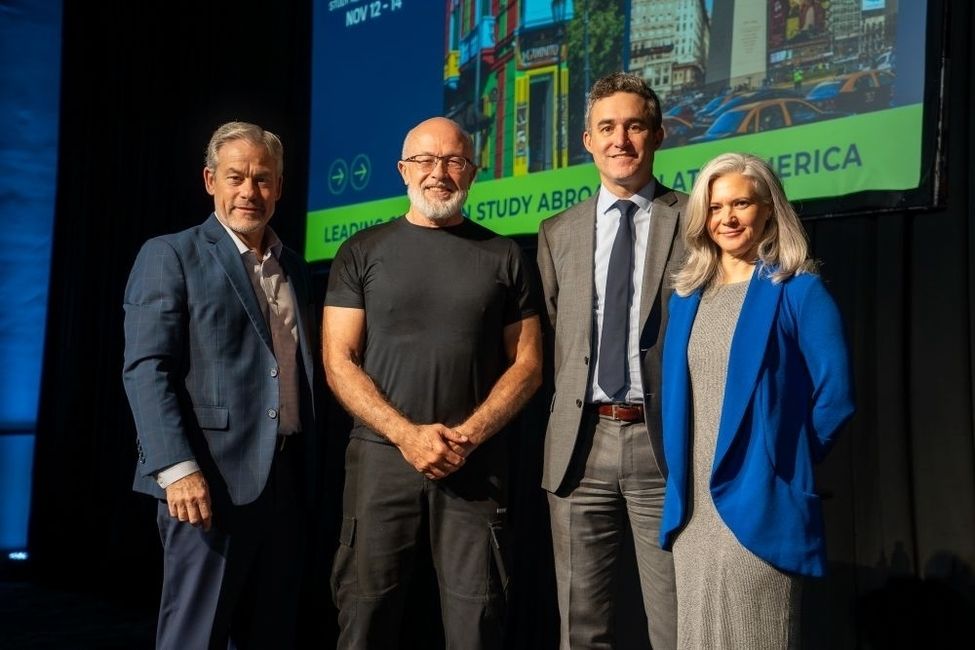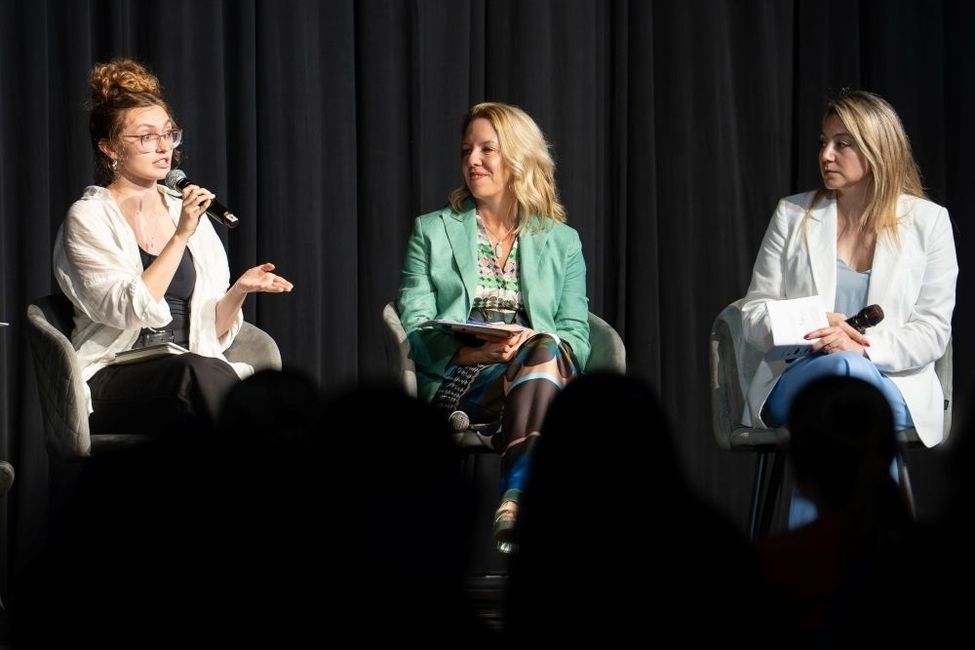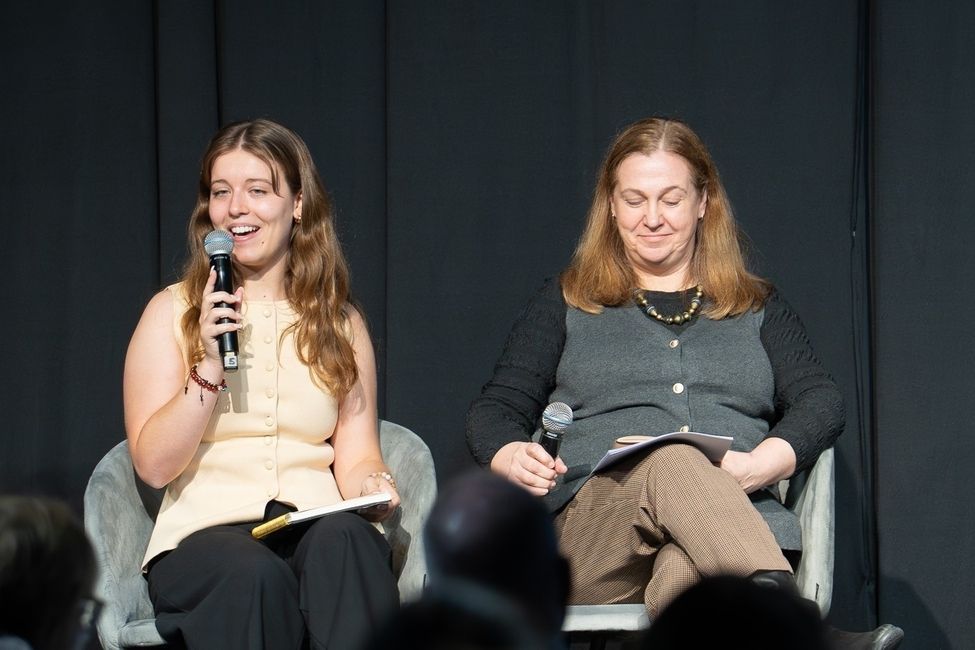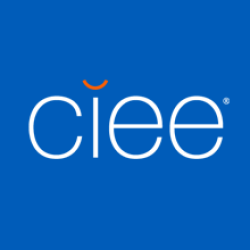78th Annual CIEE Study Abroad Conference – Day 3 Highlights
The final day of the 78th Annual CIEE Study Abroad Conference centered on the future of learning, with a closing plenary on the role of AI in education, followed by a panel featuring students who are currently studying abroad in Latin America.
AI-ELLA – AI, Education, and Learning in Latin America
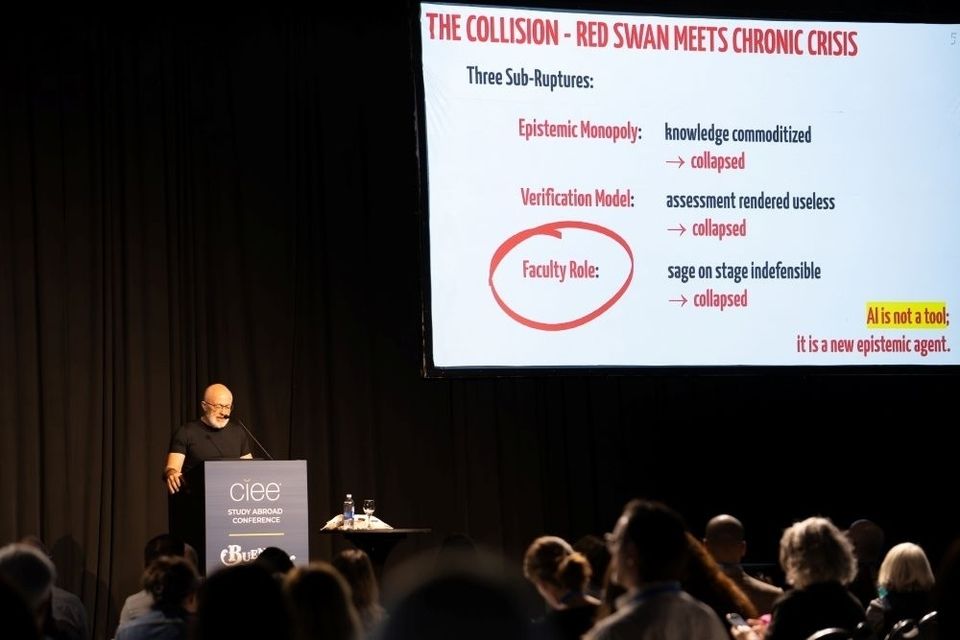
The morning opened with a plenary exploring how artificial intelligence is reshaping educational systems across Latin America and around the world.
Silvio Meira, renowned technologist and thought leader, outlined how AI is transforming public school innovation, university research, and workforce training. He argued that artificial intelligence is a transformative “red swan” event—an irreversible shift reshaping education and workforce development.
“The collision that we're seeing right now involves AI in our institutions, [and] we're losing the epistemic monopoly because knowledge is being commoditized, whether we want or not,” said Meira. “That collapses the monopoly we have in the epistemics of the world around us, a verification model with assessments being rendered useless by AI.”
Meira emphasized that universities must move beyond traditional lectures and content transmission toward cultivating metacognitive abilities such as creative problem-solving, ethical reasoning, and human–AI collaboration, which will define future employability.
“Our identity is that of an ecosystem node of an isolated tower, and our metrics is the skills bringing ecosystem value, not just enrollment and graduation,” he said. Universities must prepare graduates to leverage AI in the workplace if they are to find employment.
“The core shift here is that for a worker, it's not possession of knowledge that makes him practical or viable, it's knowledge to navigate within a context in which we have three dimensions of intelligence around us.”
Meira also highlighted Latin America’s vibrant innovation ecosystems—from fintech in Brazil to creative industries in Argentina and health tech in Chile—as powerful laboratories where students can engage directly with emerging technologies. There is the opportunity for international education leaders to position Latin America as a hub for hands-on, future-focused learning, he explained.
Students Leading Change – Recruiting the Next Generation of Latin Americanists

The conference’s closing session highlighted Fellows from the CIEE Leading Change in Latin America Student Fellowship, who shared the stage with the campus-based study abroad champions who helped make their participation possible. Together, they looked at how international education changes lives and how institutions can motivate more students to pursue opportunities in Latin America.
Alejandra Herrera, Regional Director of Operations for Latin America, CIEE, moderated the panel, which included: Alma Wigzell, Student, Western Washington University; Ryan Larsen, Executive Director, Office of Global Engagement, Western Washington University; Autumn Tallman, Director, Study Abroad Health, Safety, and Risk Management, University of Iowa; Kara Juhl, Student, University of Iowa; Carmen Rodriguez, Student, Merrimack College; Rachael Tampone, Director of International Admission & Global Engagement, Merrimack College; Casey Love, Associate Dean and Director of Global Education, Tulane University; and Joscelyn Caldwell, Student, Tulane University.
Through personal stories, the panelists illustrated the impact of immersive academic experiences in Latin America—from strengthening language skills and cultural competence to shaping career aspirations rooted in global citizenship and regional engagement.
“I feel like the biggest thing that no one really talked about, that I've experienced a lot of is differences between my personality in Spanish and my personality in English,” shared Kara Juhl. “For those that only speak one language, [immersion in a new language] is a very difficult process - yes, learning the language, but also figuring out how you fit in in a different culture, and how you want to express yourself in that second language.”
“I love to talk in English. I love meeting people,” she said. “But in Chile, I'm very quiet. I really learned how to listen when someone's talking. I've learned how to fully engage, and I'm very grateful for that.”
Student panelists also emphasized the crucial role of faculty and staff in identifying, encouraging, and supporting students who might not otherwise see study abroad as accessible. Innovative advising practices, targeted outreach, and mission-aligned funding were all highlighted as key strategies for expanding participation.
"I'm a low income student at Tulane, and I'm also the only person in my family that has an active passport," said Joscelyn Caldwell. "My mom has never left the country, except to accompany her husband on military service, and I've been trying to study abroad since I was 14. But financially, the opportunity never presented itself. [The CIEE Leading Change in Latin America Student Fellowship] really did make it possible for me to come here, but also to make the most of that experience through the stipend."
"I was able to sit down with my study abroad advisor and look at the cost of living in New Orleans, where Tulane is, versus here in Buenos Aires, versus Prague or Paris. It was really important to me that I be able to integrate to the community that I went to fully, and I knew that I really wouldn't be able to do that if I couldn't afford to do things in Europe," explained Joscelyn. "I wanted to be studying abroad with a company that prioritized getting people abroad who might not otherwise have the opportunity. That was also part of why I chose CIEE."
Campus leaders stressed the importance of promoting Latin America as a study abroad destination, addressing safety concerns, and explaining to students how to leverage study abroad experiences for future academic and career success.
Announcing the CIEE Community Impact Initiative
The session concluded with the announcement of the CIEE Community Impact initiative, which builds upon and formalizes the existing community impact work being done across our CIEE Centers. Students on any CIEE program can participate in community-focused projects and engage with our local partners while studying abroad. Their efforts will be celebrated during CIEE Community Impact Week, and students can highlight their service work in a poster competition in which they can win the opportunity to present their posters at the next CIEE Annual Study Abroad conference in Cape Town, South Africa.
